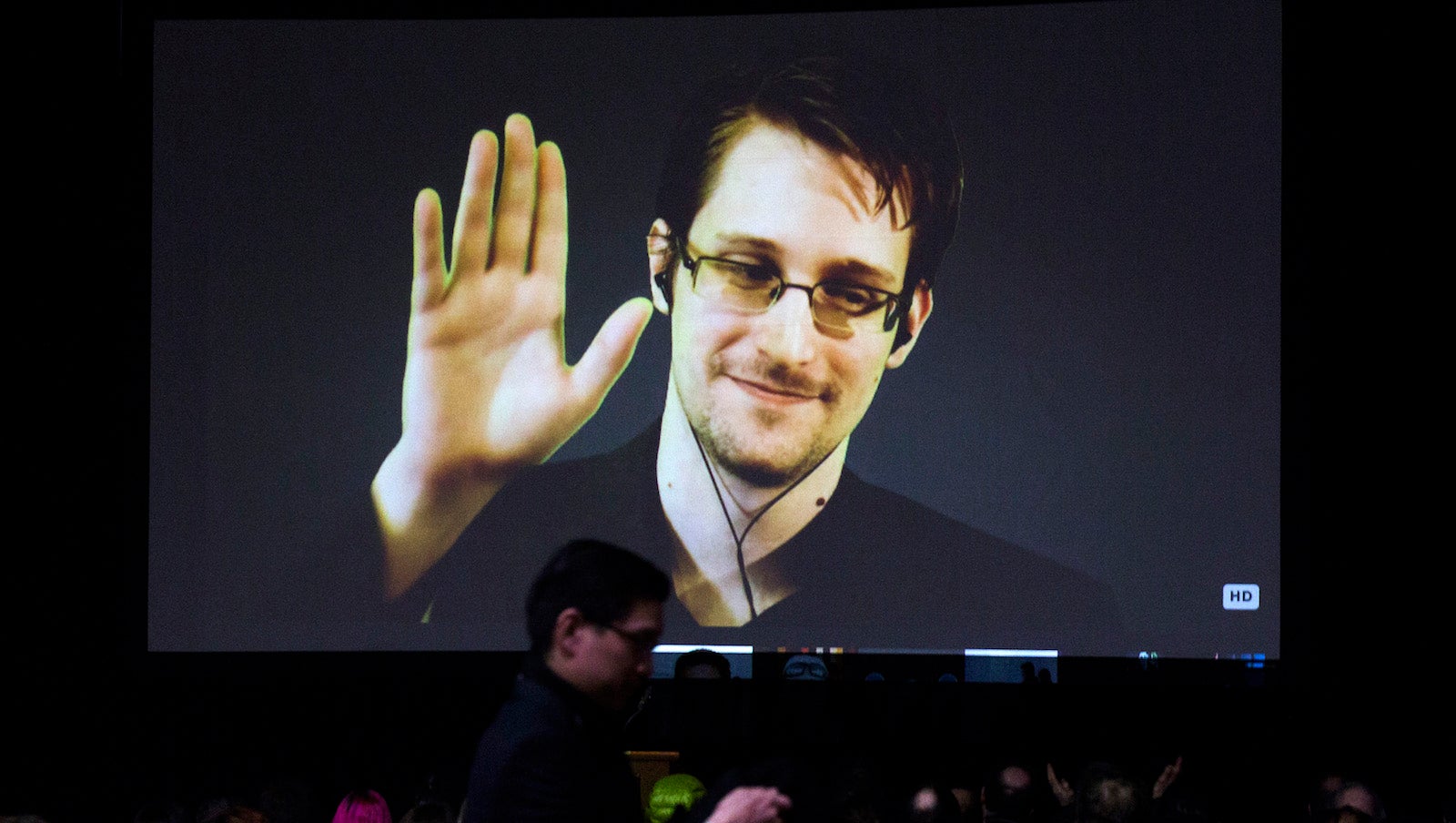Two years after Snowden, internet privacy is still a diplomatic thorn
June 5 marks two years since The Guardian first published information shared by Edward Snowden that revealed the extent of American spying capabilities. Though the US Congress has finally taken some first steps to curtail the National Security Agency’s powers, the German-US relationship is still tense, even if Americans remain blissfully unaware of it.


June 5 marks two years since The Guardian first published information shared by Edward Snowden that revealed the extent of American spying capabilities. Though the US Congress has finally taken some first steps to curtail the National Security Agency’s powers, the German-US relationship is still tense, even if Americans remain blissfully unaware of it.
In Berlin on Saturday, May 30, a group of activists called Rechtsanwälte Gegen Totalüberwachung (lawyers against mass surveillance) gathered to commemorate Snowden’s revelations. As a giant portrait of Snowden with ASYL (asylum) written underneath was rolled out, one speaker called for a new German Snowden. Other speakers, including former Bundestag Vice President Burkhard Hirsch, railed against the cooperation of the German intelligence service, the Bundesnachrichtendienst, with the NSA, calling Chancellor Angela Merkel a safety risk for her willingness to be influenced by Americans.
“It is part of the German understanding of freedom to not have intelligence agencies that are empowered to control or survey people without limitation,” said Bundestag member Thomas Oppermann in an earlier talk on May 20, livestreamed by the German Marshall Fund (GMF). “It is also a matter of what kind of partnership do we have? Are we equal partners?”
Differences of opinion on international issues—most notably the Iraq War and its aftermath—used to pull the US and Germany apart, according to a May 29 report on the future of the German-American relationship, released by the GMF, but now foreign concerns such as the ascendancy of Russia and China are bringing the two countries together. Yet the report also notes a continuing discord around the NSA’s activities on German soil, linked with a sense of asymmetry in the US-German relationship.
“We thought a new age would start with the election of Obama,” said Oppermann. “Now we are a little more sober about it.”
The issue of internet privacy is, of course, bigger than just the United States and Germany. Encryption and anonymity are major points in a report that David Kaye, the United Nations’ special rapporteur on freedom of expression, will present at the UN Human Rights Council meeting in Geneva this month. Kaye writes:
“Encryption and anonymity, and the security concepts behind them, provide the privacy and security necessary for the exercise of the right to freedom of opinion and expression in the digital age. Such security may be essential for the exercise of other rights, including economic rights, privacy, due process, freedom of peaceful assembly and association, and the right to life and bodily integrity.”
Kaye’s recommendations regarding encryption and anonymity echo positions taken by internet freedom organizations such as the San Francisco-based Electronic Frontier Foundation, which hosts part of Kaye’s report on its site.
Two years after the first leak, Snowden’s revelations have helped make cybersecurity a trending topic among average citizens across the Atlantic and make encryption and anonymity more mainstream.
Twice as many people now use anonymous browsing tool Tor as did in the pre-Snowden era, about 2 million worldwide, and DIY Cryptopartyies teach interested people how to use Tor and PGP encryption. Edward Snowden wrote in the New York Times today that he had worried privately that the risk he took two years ago would be met with indifference. “Never have I been so grateful to have been so wrong,” he writes.
As for how deeply that drama affects the supposedly special relationship between the US and Germany: “We’ve always had our share of drama,” said GMF security advisor Derek Chollet, a former US Assistant Secretary of Defense for International Security Affairs, in a conversation with former German Ambassador Wolfgang Ischinger with the Marshall Fund in Berlin on May 29. When a man in the audience asked: “Are Germany and the United States friends or partners?” Ischinger ducked the question with a reply that nonetheless illustrates the two countries’ complicated yet faithful relationship: “If the U.S. is not a perfect friend or partner, who is? The list is quite short.”